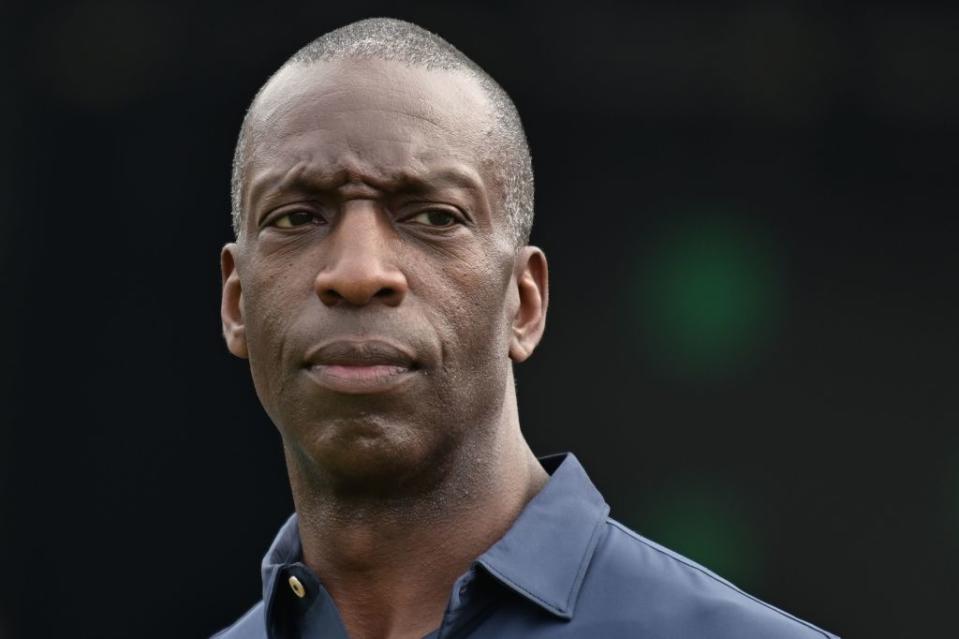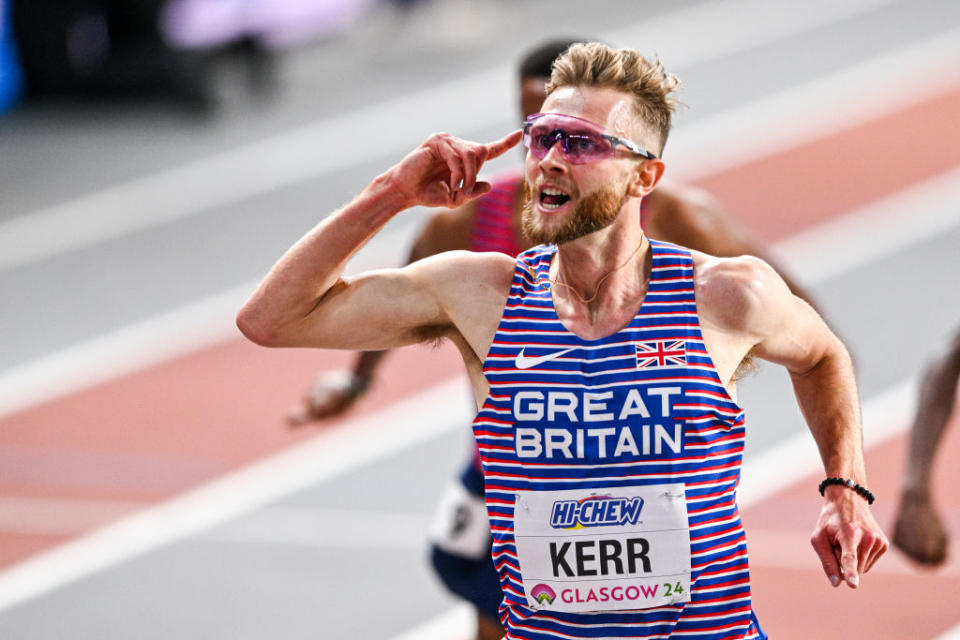Ed Warner: The future of athletics is fluid but ripe with opportunity

It wouldn’t be a World Athletics Championships if there wasn’t a slew of confected controversies to fill the media vacuum ahead of the first race.
This time it was long jumpers railing against the possible disappearance of their take-off boards, Seb Coe dismissing the Enhanced Games as “bollocks” and Michael Johnson bruiting the launch of a new track and field league to shake up the sport. Thankfully the Glasgow 2024 Indoors at the weekend were brilliant.
I don’t think until now I’ve ever uttered the words “feel sorry for World Athletics”, but it’s time to break my duck. The long jump hoo-ha is symptomatic of a sport in which innovation is repeatedly dashed by traditionalists.
It’s not just gentlemanly Welsh legend Lynn Davies – UK Athletics president during most of my time as chair – and Carl Lewis who slated a trial of measuring jumps from wherever the athlete takes off.
“It’s dog shit. If these rules apply I will stop doing the long jump,” said Miltiadis Tentoglou, gold medallist in Glasgow.
But this is just an experiment, for goodness’ sake! How is a sport to move forward if it doesn’t test possible refinements?
One hopes World Athletics has more spine than Gianni Infantino, who torpedoed the idea of blue cards for sin bin offences in football within days of the idea becoming public.
You can cite as many negative consequences of any change as you like, but can you really say you know its net effect until you’ve trialled it?
The athletics in Glasgow showed once again that the indoor format is the sport’s most undervalued and underexploited asset. A small venue, wrapped round a compact, well-lit track and infield makes for excellent viewing, both in the arena and on screen.
Vibrant presentation, a noisy capacity crowd, pacy timetable and close contests are all deliverable and saleable factors. It helps enormously, too, if athletes are competing in their national vests.
Less controllable factors are home nation success, world records, and the dominant country’s athletes not having it all their own way. In this case, the United States. Glasgow delivered on all three of these fronts.
Check out Kiwi Geordie Beamish kicking from 5th to 1st in the home straight to pip two Americans to gold in the 1500m on Sunday here.
A conspiracy theorist asked me whether I thought Michael Johnson’s absence from the BBC’s pundit roster was somehow a consequence of his rebel track and field initiative. I suspect it was more likely the cost of a transatlantic flight for a budget-conscious broadcaster.
The four-time Olympic champion has been an outspoken critic of the sport’s hierarchy, though, and his plans will certainly be making many uncomfortable. He’s no caveman living in the sport’s past.
“I love this sport and owe everything I have to this sport. It’s been a shame for me to watch it over the last couple of decades since I retired not be able to continue to provide the same amazing moments to people, outside of just the Olympics.”
Michael Johnson
Whatever competition structure Johnson and his funders create, it is highly unlikely to include every athletics discipline. As disruptors, they may inadvertently do World Athletics a favour in highlighting which events are truly bankable and which must change or be dropped for the sport to remain relevant.
I’ve enjoyed watching live race walking. My dodgy eyesight struggles to pick up a discus or hammer in flight, yet I know some who love those events. But we’re not the target audience. Far from it.
Other Olympic sports doubtlessly look jealously at athletics’ ability to spike interest for major championships outside the Games. Many face similar challenges around event composition and relevance, without the perennial box office appeal that core track and field disciplines generate.
Why does cycling persist with the Keirin and its motorbike pacer? What is rhythmic gymnastics doing at the Olympics with its ribbons, balls and hoops? And should flatwater canoeing be at the Games when slalom is so exhilarating by comparison? To name just three sports.
Money, as ever, will be a determining factor – perhaps the key determinant. In track and field, athletes in the marquee disciplines will be the winners.

I said last week that World Athletics needs to multiply the prize money on offer at its Indoors to ensure the very best athletes target the event. That is just as important for the annual Diamond League circuit, and the new “best of the best” event that Seb Coe recently trailed.
Private equity houses and governments looking to make inroads into sport can expect to be courted. The major kit manufacturers too, as they have an iron grip on most of the world’s best athletes. And remember that Nike still loves to see itself as an edgy challenger in spite of its dominant market position.
Both Johnson and Coe were Nike athletes in their pomp, as it happens. I wouldn’t put it past a collaboration between all parties for the good of the sport, once initial stances have been promoted and respective positions tested. Fluid times, that’s for sure, replete with both opportunity and risk.
Brit watch
Performances indoors are rarely a reliable guide to future outdoor championships, including the Olympics. However, a number of athletes in Glasgow put down serious markers for Paris 2024.
Among them, both GB’s gold medallists – Josh Kerr in the 3000m and Molly Caudery in the pole vault – delivered truly world class performances, indoors or out. Fire and ice in their veins in equal measure, it seems. Both have marquee track and field appeal too.
Once an athlete…
Glasgow’s Buchanan Street on Sunday was appropriately graced by street entertainer Liam Collins, an athlete who styles himself Stunt Runner, hurdling blindfolded through hoops of knives and fire.
The Power of 10 stats website shows his 110m hurdles PB of 14.05 seconds was set in 2002, and that he ran in the World Masters Champs indoors in Poland just last year. He won bronze in the 60m hurdles 40+ age category.
Final word
Thanks for all the sporting novel selections from readers over recent weeks. Here’s the final recommendation that arrived in my inbox:
“On books, you must have read ‘The Art of Fielding’ by Chad Hardbach? If you haven’t, you must – it’s fabulous (even if based on the somewhat alien sport of baseball).”
One thing I have learned: the American sports fiction canon is far more extensive than the British.
Ed Warner is chair of GB Wheelchair Rugby and writes his sport column at sportinc.substack.com

 Yahoo Finance
Yahoo Finance 